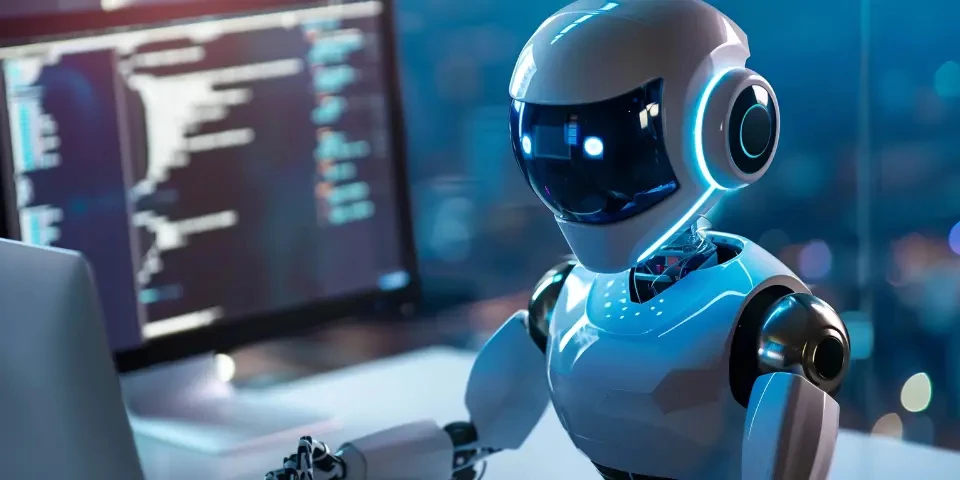Secrets of AI Get Answers to All Your Burning Questions
Artificial Intelligence (AI) has emerged as one of the most revolutionary technologies of our time. Its applications span across industries such as healthcare, finance, transportation, and entertainment, transforming the way we work and live. If you're curious about AI and eager to uncover its secrets, this article will provide answers to all your burning questions. Let's dive in!
1. What is AI?
AI refers to the simulation of human intelligence in machines that are programmed to think and learn like humans. It involves the development of computer systems that can perform tasks that typically require human intelligence, such as speech recognition, problem-solving, decision-making, and more.

2. How does AI work?
AI relies on techniques such as machine learning, natural language processing, and neural networks to process vast amounts of data and extract meaningful insights. Machine learning algorithms enable AI systems to learn from data without explicit programming, allowing them to improve their performance over time.
Neural networks, inspired by the human brain, simulate interconnected nodes that process information. Natural language processing enables AI to understand and interpret human language, making it possible for chatbots and virtual assistants to communicate with us.
3. What are the applications of AI?
AI has a wide range of applications across industries. In healthcare, AI is used for medical image analysis, drug discovery, and personalized medicine. In finance, AI helps detect fraud, automate trading, and assess credit risk. In transportation, AI powers self-driving cars and optimizes traffic flow.
Other areas of application include customer service chatbots, recommendation systems in e-commerce, virtual personal assistants like Siri and Alexa, and even in entertainment with AI-generated music and movies.
4. What are the ethical implications of AI?
The rapid advancement of AI raises important ethical concerns. One major concern is job displacement, as AI automation may render certain roles obsolete. There are also concerns about biased algorithms, lack of transparency, and potential misuse of AI technology for surveillance or malicious purposes.
It is crucial for policymakers, researchers, and developers to address these ethical implications and ensure that AI is used responsibly and ethically.
5. Can AI replace humans?
While AI has the potential to automate many tasks, it is unlikely to completely replace humans. AI excels at repetitive and data-intensive tasks, but human creativity, emotional intelligence, and critical thinking are difficult to replicate.
Instead of replacing humans, AI is more likely to augment human capabilities, leading to enhanced productivity and efficiency in various domains.
6. What are the challenges of AI implementation?
AI implementation faces several challenges. One major hurdle is the availability of quality data required for training AI models. Additionally, ethical concerns, regulatory constraints, and the need for skilled AI professionals pose challenges to widespread adoption.
Moreover, AI systems can be susceptible to biases in their training data, which can lead to unfair outcomes. Ensuring fairness and avoiding unintended consequences are critical challenges in AI implementation.
7. Are there any AI-powered apps or websites I can try?
Yes, there are numerous AI-powered apps and websites that you can explore. One popular example is Grammarly, an app that uses AI to enhance your writing by providing grammar and spelling suggestions. Another example is Netflix, which uses AI algorithms to recommend personalized content based on your viewing history.
If you're interested in virtual assistants, you can try out Google Assistant, Apple's Siri, or Amazon's Alexa. These virtual helpers utilize AI to understand and respond to your voice commands, assisting you with various tasks like setting reminders, playing music, or even ordering groceries.
8. Is AI dangerous or a threat to humanity?
There is ongoing debate about the potential dangers of AI. While AI has immense potential for societal benefits, ensuring its safe and responsible development is crucial.
Renowned experts like Elon Musk and Stephen Hawking have expressed concerns about the long-term risks of AI if left unchecked. However, many researchers and organizations are actively working on developing AI systems with built-in safety measures and ethical guidelines to mitigate potential risks.
Frequently Asked Questions:
Q: Can AI have emotions?
A: AI systems can simulate emotions to some extent but lack true emotional experience.
Q: How do AI algorithms learn from data?
A: AI algorithms learn from data by identifying patterns and relationships, adjusting their models accordingly to make accurate predictions or decisions.
Q: Is AI only used in large organizations?
A: No, AI is now accessible to businesses of all sizes, and many AI tools and platforms are available for startups and small enterprises.
